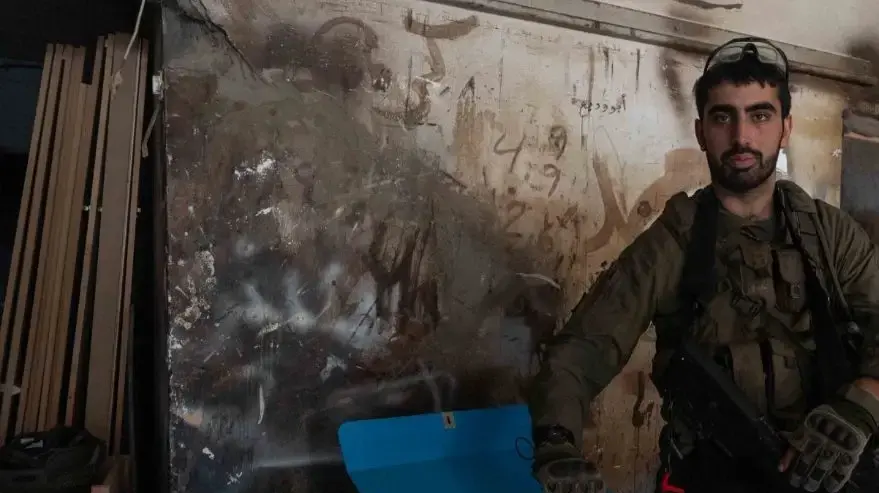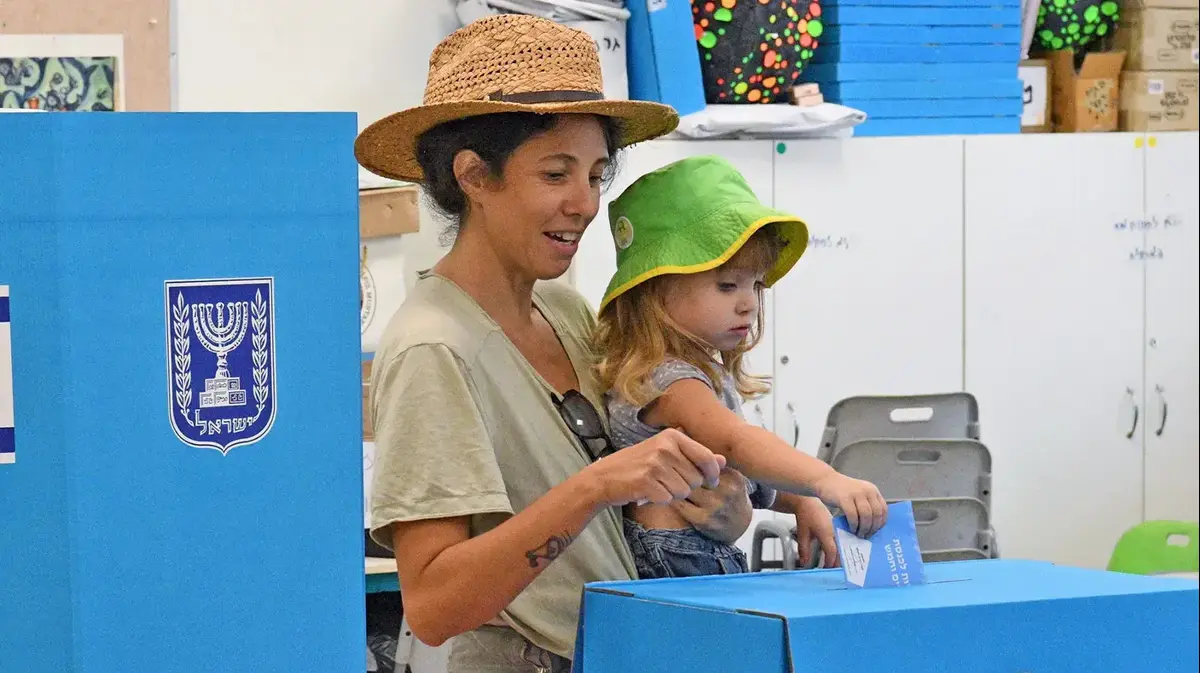For the fourth time in two years, Israel is electing its parliament again.
Will Benjamin Netanyahu be Prime Minister again?
A rocket was fired at Israel from the Gaza Strip.
Update from March 23, 9:00 p.m.:
The polling stations in Israel should now be closed, and citizens had until 9 p.m. to cast their votes.
According to the latest figures from the election commission, the turnout until 5 p.m. was around 52 percent.
In the March 2020 election, around 56 percent of those eligible had ticked the box at the same time.
Meanwhile, according to the army, a rocket was fired from the Gaza Strip at Israel.
According to the first information, there should have been no victims, there should also be no property damage.
The alarm was only triggered in uninhabited terrain.
So far, nobody from the Gaza Strip confessed to the shooting.
According to media reports, the missile fell in the region around Beersheva.
Prime Minister Benjamin Netanyahu is said to have been there at the time.
Parliamentary elections in Israel: close outcome expected - turnaround in voter turnout
Update from March 23, 7.40 p.m.:
After a promising start in the morning with a high turnout, the opposite is now becoming apparent in the election in Israel.
On Tuesday afternoon, according to the Central Election Committee, the turnout was 34.6 percent.
In the parliamentary elections a year ago, this was 3.5 percentage points higher at that time.
In the morning, 14.8 percent of those eligible had already voted.
That equates to almost a million people.
The polling stations close at 9 p.m., but the electoral committee does not expect the preliminary final result until Friday.
Because of the Corona crisis, special safety rules apply this year.
There is no postal vote in Israel, so infected people had to make their marks in special polling stations.
Parliamentary elections in Israel: Benjamin Netanyahu addresses the population - close result expected
Update from March 23, 1:45 p.m.:
Benjamin Netanyahu, the previous Israeli head of government, has called on people to participate actively in the parliamentary elections.
"This is a holiday for Israel, a day of joy and smiles," said the 71-year-old, according to his office, when casting his vote in Jerusalem.
The parliamentary elections in Israel started on Tuesday with a high turnout.
According to the Central Election Committee, this was already 14.8 percent at nine o'clock (CET).
974 557 people have already cast their vote.
According to experts, a high voter turnout could make it difficult for smaller parties to overcome the 3.25 percent hurdle.
This applies above all to the left-liberal Meretz, the Arab Raam, the center alliance Blue-White and the ultra-right religious-Zionist party.
Parliamentary elections in Israel: new elections after a good year
First report from March 23, 12 noon:
Tel Aviv - It is already the fourth election in two years.
The parliamentary elections in Israel * began on Tuesday, March 23rd.
As the
Israel Democracy Institute
(IDI) calculated, in no other country in the world have the intervals between parliamentary elections been shorter in the past 25 years.
Once again, the election is expected to be a close race - but the previous Prime Minister Benjamin Netanyahu has a good chance of winning again.
The 71-year-old has been in office continuously since 2009, making it the country's longest-serving head of government.
The last elections took place in Israel on March 2, 2020.
After a good year there are now parliamentary elections again.
The alliance between Prime Minister Benjamin Netanyahu and his rival Benny Gantz had previously broken after a few months.
The coalition was formed at the time due to the pressure of the corona pandemic *.
Netanyahu and his right-wing conservative party Likud are likely to become the strongest force again in these parliamentary elections.
It is unclear whether the 71-year-old can form an alliance and remain head of government.
Even another new election this year is conceivable, according to the
German press agency
.
About a dozen parties can move into the 120-seat unicameral parliament - the Knesset.
The hurdle for this is 3.25 percent of the vote.
This will "play a major role in whether or not Netanyahu can remain prime minister," says political scientist Jonathan Rynhold, according to information from the
dpa
.
Right-wing Naftali Bennett wants to replace Netanyahu.
Its settler-friendly Jamina party recently saw third place, behind the Future Party and ahead of Saars Tikva Chadascha (New Hope).
Bennett accuses Netanyahu of failure in corona crisis management.
However, he has not ruled out joining a coalition under him.
According to the latest polls, both Netanyahu and the anti-Netanyahu camp would have a slim majority - if the Jamina party joined them.
Since there have so far been great reservations on both sides, an alliance is likely to be difficult, according to the
dpa
.
The third scenario is a stalemate and, as a result, another new election in August.
At least IDI President Plesner does not believe in it: "There is no appetite for another election." According to reports, however, there are many who are undecided.
Surprises are therefore conceivable.
Parliamentary elections in Israel: people infected with corona should be brought to polling stations
There is no postal vote in Israel.
It is therefore difficult for people who have the coronavirus to choose.
Therefore, the government is planning to use special cars and buses to bring the infected to the polling stations.
The
dpa
reports
.
Almost 60 polling stations are available in the corona stations of the hospitals.
Due to the circumstances and an upcoming holiday weekend, the count could take longer than usual. About 6.6 million people are eligible to vote.
Israel could be the first country to leave the corona crisis behind.
Nevertheless, many struggle with the current Prime Minister's Corona * course.
The daily number of infections in 2020 was higher than in many other countries, the lockdown phases were very long, and many people lost their jobs.
Netanyahu was also accused of showing too much consideration for the ultra-orthodox by secular Israelis - strictly religious parties were important partners for him in the past.
So
a dispute broke out that puts Israeli society to a severe test.
In addition, there is a lawsuit against Netanyahu for possible corruption.
Since the summer there have been protests against him every Saturday across the country.
Around 20,000 people reportedly took to the streets near Netanyahu's official residence in Jerusalem on Saturday.
With a right-wing coalition, Netanyahu could try to prevent a conviction, according to the
dpa
.
(dp / dpa) * Merkur.de is an offer from IPPEN.MEDIA
List of rubric lists: © Ilia Yefimovich / dpa / picture alliance









